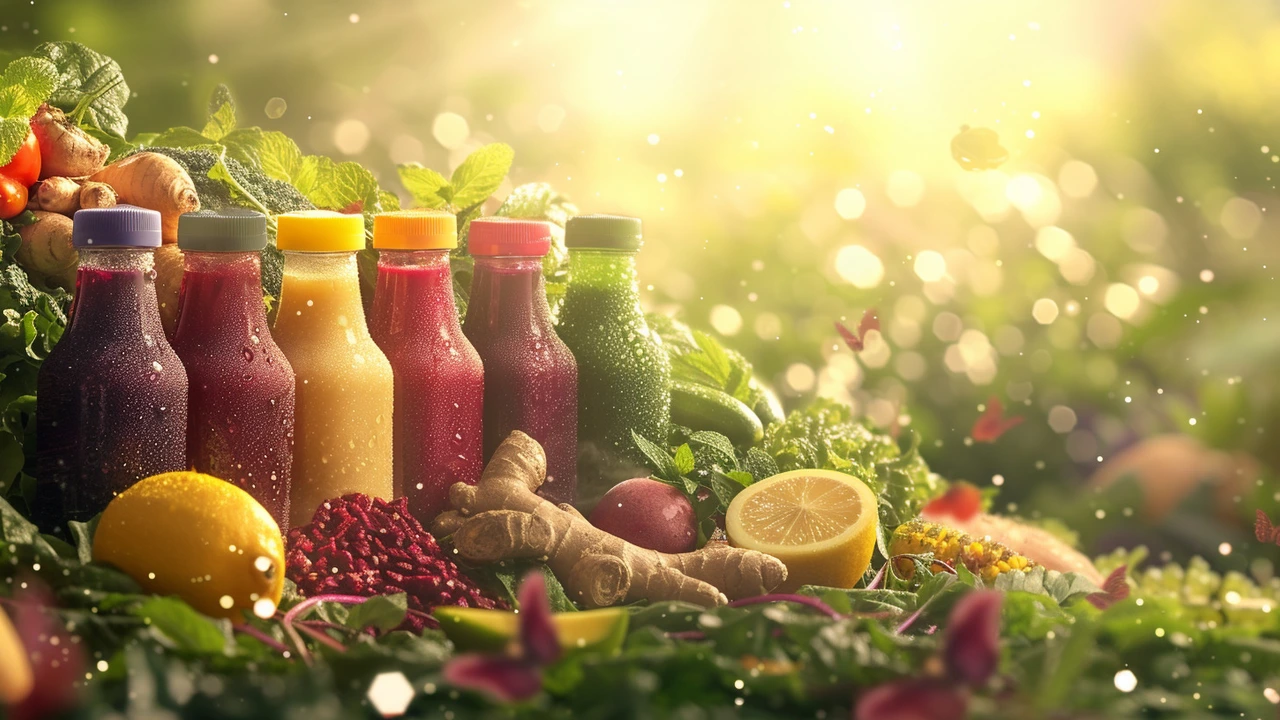Health Juice Benefits: What Works and What Doesn’t
Think a morning glass of juice is a harmless shortcut to health? It can help—and it can also stall your progress if you don’t choose wisely. Juices concentrate vitamins, minerals, and plant compounds into an easy drink.
But juice often strips fiber and can pack a lot of sugar and calories into a small cup. That sugar can spike blood glucose, feed cravings, and leave you hungry soon after. Use juice for benefits, not as a free pass to extra sweets.
Quick rules for better juices
Start with vegetables. Make greens, cucumber, celery, or tomato the base, and add a piece of fruit for sweetness. Keep portions to about 8–12 ounces. Pair your juice with a protein or healthy fat—yogurt, a handful of nuts, or a scoop of nut butter—so you slow sugar absorption and stay full longer.
Watch ingredients that add hidden problems. Beetroot, dates, and grape juice are healthy in small amounts but can raise sugar fast. Rotate ingredients to avoid building up too much of any one compound—spinach and beetroot can raise oxalate load for some people. If you have diabetes or take blood-thinning meds, check with your clinician before adding daily juices.
Practical benefits and real uses
Want more energy? A green juice with spinach, cucumber, apple, and a thumb of ginger can wake up digestion and add steady vitamins without a sugar crash when paired with protein. Need gut support? Add a small shot of fresh turmeric and a squeeze of lemon—turmeric may calm inflammation and lemon helps bile flow. Trying to eat more vegetables? Juices make it easy to get a range of colors and nutrients in one go.
Make juice work for weight goals by treating it as a supplement. Replace a sugary snack with a veggie-heavy juice plus a boiled egg or a small handful of almonds. Avoid using juice as a full meal every day; whole foods provide fiber and chew that aid satiety and nutrient balance.
Store-bought juices are okay occasionally, but check labels for added sugar and long ingredient lists. Fresh is best—use clean produce, chill quickly, and drink within 24–48 hours.
Three easy juice ideas to try:
Green boost: kale, cucumber, green apple, lemon, ginger. Carrot tonic: carrot, orange, beet (small), a pinch of turmeric and black pepper. Morning refresher: watermelon, mint, a splash of lime, and a few ice cubes.
Small storage and prep tips: Wash produce well, peel only if not organic or if skin tastes bitter, and use a tight container. If you want fiber, scoop a few spoonfuls of pulp into yogurt or baking. For best flavor and nutrition drink fresh, but if needed store in a sealed bottle in the coldest part of your fridge.
Try this for one week: swap one sugary breakfast or snack for a veggie-forward juice plus protein. Track energy, hunger, and digestion for three days. If you feel blood sugar swings or other issues, cut back and consult your clinician.
Discover the Top Health Juices to Enhance Wellness & Vitality Naturally
Hey there, friends! So, I've been delving into the world of health juices recently and, let me tell you, it's been quite the eye-opener. Who knew that a simple blend of fruits and veggies could do wonders for rejuvenating the body? I'm excited to share my discoveries about how certain juices can kickstart your day and infuse your body with much-needed nutrients. Stick with me, and I'll unravel the secrets behind these potent elixirs that promise to revitalize your health and bring out the best in you, naturally! Whether you’re looking for an immune boost, an energy uptick, or just want to feel a bit more sprightly, I’ve got the juicy scoop for you!
View More





